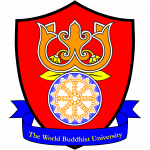Brazil
Find Your Degree in Brazil
Feb-Feb Academic Year
1 List Institutes
29 Ranked Universities
Unavailable Students
Study in Brazil
Studying abroad is an attractive prospect to many students, or those considering becoming learners. Studying in Brazil is particularly fascinating, as this country is brimming with different cultures, languages, colours, religions and art forms. This makes the students’ experience in this South American land richer and more diverse.
Brazil has a number of excellent schools and universities. In fact, universities account for more than three-quarters of the higher education system. Courses can last anywhere between two and six years, depending on the content. The educational system differs slightly from other countries and prospective students will need to research the corresponding value of the degrees and diplomas in their home countries before committing to these.
In Brazil, 5 million students are enrolled in the more than 23,000 programs available in universities all over the country. Over 2,000 private and public schools offer higher education programs with domestic and international recognition for quality. A number of Brazilian universities rank in the top 500 public best universities in the world. Private universities also stand out for the number of quality programs offered and of students enrolled. They account for 76% of the higher education system and offer courses lasting from 2 to 6 years.
In some of the Spanish and English colonies in the Americas, institutions of higher learning were established as early as the 17th century. Upon graduating, students had the option of either becoming priests or continuing their studies in Europe.
In the period before and after the independence of Brazil, other schools of higher learning, although not formally called "universities," were founded, including those specialized in civil and military engineering, medical faculties and technical courses in the fields of botany, chemistry, geology, mineralogy, and economy were created. The faculties of law founded after the independence of Brazil served as nuclei that developed into modern Brazilian universities.
Higher education system
The Higher Education system in Brazil is divided in three main categories:
- Universities conduct research and community outreach.
- University Centers are multi-course institutions that are not required to carry-out research, but may initiate new study courses without seeking permission from the Ministry of Education.
- Integrated Faculties and Schools of Higher Education are smaller institutions that obtain approval from the Ministry of Education when opening new courses, certificates, or degrees.
Most federal and state institutions are universities and tuition is free, while municipal governments tend to run smaller institutes, sometimes charging tuition. Private Higher Education institutions charge wide-ranging fees, based on the degree programs offered.
Public or private higher education institutions invest in quality study courses as well as social inclusion programmes. There is a great focus on improving facilities, hiring experience faculties, providing affordable tuition and creating a great variety of courses.
Graduate
- "Lato sensu postgraduate" degree: this degree represents a specialization in a certain area, and takes approximately 1 to 2 years to complete. MBA programs in Brazil are classified as lato sensu programs.
- "Stricto sensu postgraduate" degree: this degree enables one to pursue an academic career. In chronological order:
- Master's degree (mestrado): this takes 1 to 2 years of full time studies to complete.
- Doctoral degree / PhD (doutorado): this takes 3 to 4 years to complete
- Postdoctoral research (pós-doutorado): this is not an academic title; it usually denotes excellency in a field of knowledge acquired through supervised research after a doctorate.
- Livre-docência: this is the highest academic qualification in Brazil. The livre-docência requires the candidate to write a professional thesis, based on independent scholarship.
Admission exam
In order to enter a university in Brazil, candidates must undergo a public open examination called the Vestibular, which usually lasts between 1 and 5 days, and takes place once a year. Some universities may run the Vestibular twice a year. Offering more frequent exams is popular among private universities, while public universities usually run the Vestibular only once a year.
The vestibular includes many subjects offered in high school, such as: Mathematics, Physics, Chemistry, Biology, History, Geography, Literature, Portuguese language, and a foreign language (usually the candidate can choose between English, Spanish or French). Since public universities are free of charge and there are a limited number of open slots, there is high competition with the Vestibular.
English language preparation for studying in Brazil
Develop your academic English language skills in order to meet the English language requirements at Brazilian universities offering degree studies for international students. Choose an English language school anywhere in the world and pick your preferred English exam preparation course from diverse language course options.
Brazil : Buddhist Study & Related















Browse by Degree
SITE MAP
ABOUT US
Press Release
Blog
Contact Us
Service for Students
Intelligence
Student Recruitment
SERVICE
University Administration
Register Your University
